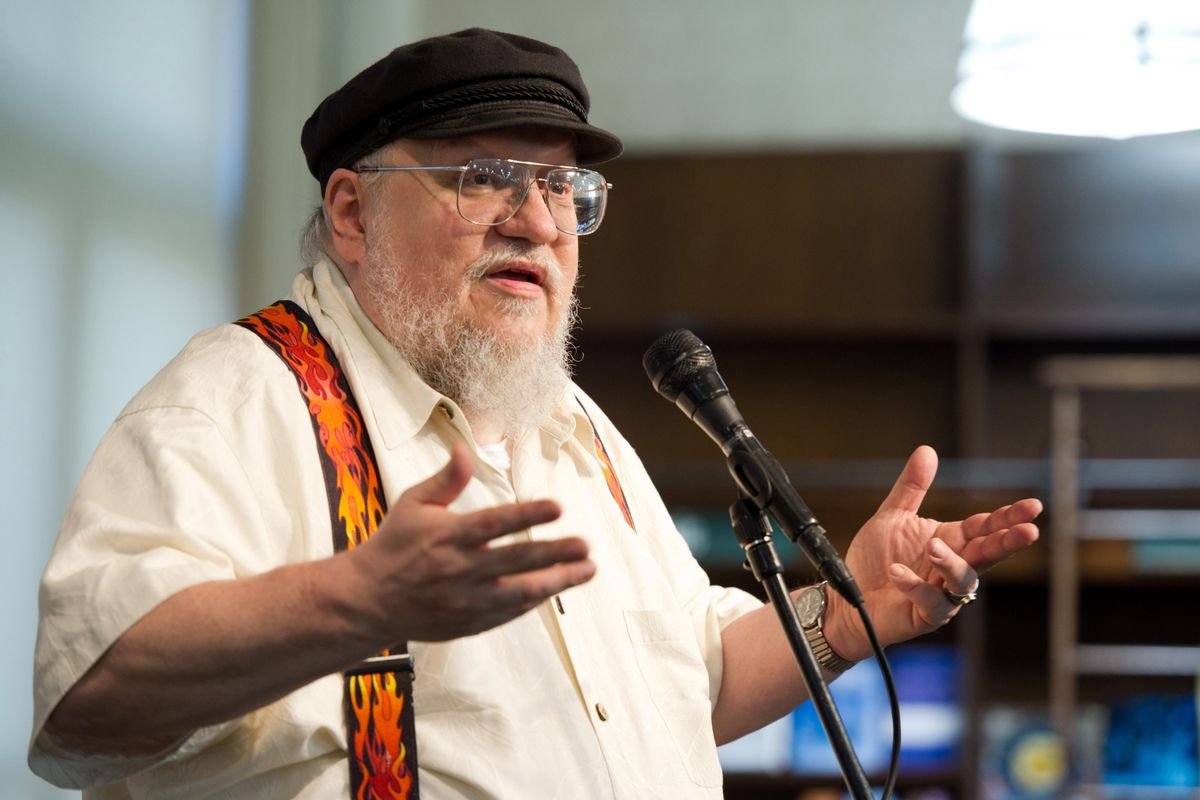The World Science Fiction Convention convened yesterday in Chicago. Unlike San Diego's Comic-Con, Worldcon hasn't gone Hollywood just yet -- you're more likely to share an elevator with astronaut Story Musgrave than Seth MacFarlane. The big autograph sessions are with authors like John “Redshirts” Scalzi, and panels cover topics like “Anarchism in Fantasy and Science Fiction” and “Are You a Dickhead?” (a retrospective of author Philip K. Dick's work, of course).
Sunday evening, Scalzi will host the annual Hugo Awards, the event that makes Worldcon important to people who don't know urban fantasy from Urban Outfitters. Hugos cover a lot of science fiction, horror and fantasy ground (categories include film, podcasts and illustration, among others), but the novel and novella nominees are of particular interest to anyone who loves literature.
Awards are voted on by members of the World Science Fiction Society -- 5,000 of them, give or take -- so its process is even more open and unpredictable than, say, that of the Pulitzer fiction prize, whose jury managed to surprise everyone with last year's shut-out. The awards are also a great indicator of what's popular among a significant sample of voracious genre fiction readers, whose lists don't always overlap with those of book critics -- even now, when the old genre vs. literary fiction divide has been mostly conquered.
Genre-hopper China Miéville, whose short-listed novel “Embassytown” stands a decent chance of winning, gave an intriguing keynote at the Edinburgh World Writers' conference last week on the future of the novel:
“I really, really don't want to talk about genre, because I always really want to, and nerd-whines are boring. But a detente between litfic and its others is real. It's a cliché to point out that generic tropes are infecting the mainstream, with a piling-up of various apocalypses by those guilty of literature.”
When the Coen brothers finally get around to filming Michael Chabon's best-selling “The Yiddish Policemen's Union,” it'll bear the Hugo Award Winner badge (and the Nebula and Locus, too). Last year I managed to finish only two of those three unrequited Pulitzer finalists; David Foster Wallace's “The Pale King” continues to stare reproachfully from my shelf because I was too busy devouring George R.R. Martin's “A Song of Ice and Fire” series after Season 1 of “Game of Thrones” ended to even pick it up.
Martin's “A Dance With Dragons” is up for the Hugo this year — no surprise if you're paying attention. But back in 2006, when his “A Feast for Crows” got the nod as well, that wouldn't have been mainstream news.
Mira Grant's “Deadline” is also on the short list. She's not the household name Martin is -- yet -- but “Deadline” is the second in her “Newsflesh” trilogy about zombie conspiracy-busting bloggers, a premise that could not be better suited for prime time and its own promotional panel at Comic-Con: “Gawker” In the Time of “The Walking Dead?”



Shares